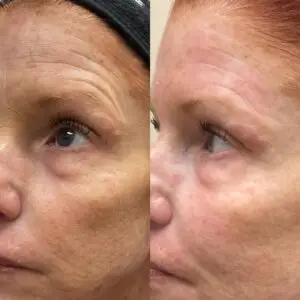As women move through their 40s and approach their 50s, lots of changes take place — many of them unfavorable. You may experience hair loss, chronic fatigue, forgetfulness, weight gain, and other generally unpleasant symptoms.
But how can you tell if you’re going through perimenopause or experiencing a thyroid problem? Both conditions involve hormone imbalances, and it’s especially tough to know when you’re still having menstrual cycles.
If you’re unsure whether you’re approaching menopause or just dealing with thyroid issues, a good place to start is understanding the symptoms of both and what you should do for a true diagnosis. Our experts at XBody Health & Wellness explain.
What is thyroid disease?
Thyroid disease is an umbrella term that covers two distinct conditions: hypothyroidism and hyperthyroidism.
If you have hypothyroidism, it means you have an underactive thyroid gland that isn’t producing enough hormones. If you have hyperthyroidism, you have an overactive thyroid that produces too much of certain hormones.
Other thyroid conditions include:
- Goiter, which is enlargement of your thyroid gland caused by iodine deficiency
- Thyroid nodules, which are painful lumps in your thyroid gland
- Thyroiditis, or swelling of your thyroid gland
- Thyroid cancer
Although there are several types of thyroid disease, hypothyroidism (underactive thyroid) is the one associated with menopause-like symptoms.
Symptoms of underactive thyroid
An underactive thyroid gland doesn’t produce enough thyroid hormones, which are important to many bodily functions, including the regulation of your metabolism. Without enough thyroid hormones, you may experience weight gain, fatigue, constipation, and dry skin, to name a few.
The list of symptoms goes on:
- Sensitivity to cold temperatures
- Puffy or swollen face
- Muscle weakness
- Joint pain
- Swelling or stiffness in joints
- Irregular menstrual cycles
- Hair loss or thinning hair
- High blood cholesterol
- Depression or other mood issues
- Poor memory
Is it menopause or a thyroid problem?
As you can see, hypothyroidism causes many symptoms similar to what women experience during the menopausal transition. Weight gain is often the hardest symptom to distinguish, because weight gain in middle age can happen for a number of reasons.
Thyroid disorders are common in women. If you think you might have a thyroid issue, consider getting a thyroid-stimulating hormone (TSH) blood test.
Are you struggling to tell the difference between menopause and thyroid disease? Schedule a consultation with us at Xbody Health & Wellness to find out, so you can get the right treatment to feel better. Call us or use our online system to request an appointment at our Wayne, New Jersey office.







